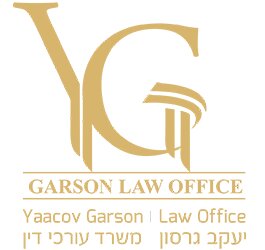Best Lawsuits & Disputes Lawyers in Israel
Share your needs with us, get contacted by law firms.
Free. Takes 2 min.
Or refine your search by selecting a city:
List of the best lawyers in Israel
About Lawsuits & Disputes Law in Israel
Lawsuits and disputes in Israel encompass a wide range of legal proceedings and correspond to civil cases in various areas, including commercial disputes, real estate conflicts, consumer protection, and personal injury claims, among others. Israel's legal system is based on a combination of common law and civil law traditions, with significant elements derived from Biblical and Talmudic law, British Mandate precedents, and Ottoman laws. The legal process typically involves filing a complaint in civil court, and the Israeli court system is known for its efficacy and professionalism. The overarching goal is to ensure justice is served impartially and in accordance with the laws of the land.
Why You May Need a Lawyer
There are numerous situations where individuals or businesses might require legal assistance when dealing with lawsuits and disputes in Israel. Common scenarios include:
- Business disputes, such as breach of contract or partnership disagreements.
- Family law issues, including divorce and child custody cases.
- Real estate conflicts related to property rights or lease agreements.
- Personal injury claims from accidents or medical malpractice.
- Consumer protection claims involving defective products or services.
- Employment disputes, such as wrongful termination or harassment claims.
A lawyer can provide expertise and representation to navigate the legal system, protect your rights, and advocate for your interests.
Local Laws Overview
Several key aspects of local laws are particularly relevant to lawsuits and disputes in Israel:
- Civil Procedure Law: This is the framework for civil court processes, detailing the rules for filing claims, presenting evidence, and conducting hearings.
- Contract Law: Governs legally binding agreements and remedies available in cases of breach.
- Tort Law: Relates to private or civil wrongs, providing remedies for civil harms not arising from contractual obligations.
- Family Law: Regulates familial relationships, divorce, child custody, and inheritance, often requiring special court systems like Rabbinical Courts.
- Property Law: Deals with rights and interests in property, including ownership, leasing, and transfer of real estate.
Frequently Asked Questions
What types of civil cases can be brought to court in Israel?
Civil cases can include contract disputes, estate claims, property issues, torts, intellectual property disputes, and more. Each type of case may follow specific procedural rules.
How long does it typically take to resolve a lawsuit in Israel?
The duration varies based on case complexity, court workload, and procedure requirements. Simple cases might take several months, while complex disputes could extend over several years.
Can foreign nationals file lawsuits in Israeli courts?
Yes, foreign nationals can file lawsuits in Israel, often subject to jurisdictional statutes and the nature of the dispute.
Is mediation or arbitration available as an alternative to litigation?
Yes, mediation and arbitration are encouraged as alternative dispute resolution methods in Israel, offering more flexible, private, and potentially faster solutions.
What are the costs associated with filing a lawsuit in Israel?
Costs can include court fees, attorney fees, and additional expenses like expert witness fees. Some cases might also incur contingency fees depending on the arrangement with legal counsel.
Are there any time limits for filing a lawsuit (statute of limitations)?
Yes, different types of civil claims have specific limitation periods. For instance, the typical limitation period for contractual claims is seven years.
Can I represent myself in a lawsuit or dispute in Israel?
It is possible for individuals to represent themselves, but due to potential complexities, seeking legal advice or representation is often recommended.
Do Israeli courts enforce foreign judgments?
Israel can enforce foreign judgments, subject to certain legal criteria and international treaties or agreements.
What language are court proceedings conducted in?
Hebrew is the primary language of court proceedings in Israel. Non-Hebrew speakers may require translation services.
Where can I appeal a court decision?
Appeals can generally be filed with a higher court, such as district courts for magistrate court cases or the Supreme Court for district court cases.
Additional Resources
For further assistance, consider reaching out to the following resources:
- Israeli Bar Association: Provides directories of licensed attorneys and legal resources.
- Ministry of Justice: Public and legal information concerning the justice system in Israel.
- Legal Aid Department: Offers free or subsidized legal services based on specific eligibility criteria.
- Consumer Protection Authority: Assistance and guidance for consumer-related disputes.
Next Steps
If you need legal assistance in handling lawsuits and disputes in Israel, consider taking the following steps:
- Evaluate your Situation: Clearly outline the nature of your legal issue to comprehend your needs better.
- Consult with a Lawyer: Seek initial consultations to get professional advice regarding your legal matter.
- Gather Documentation: Collect any relevant agreements, correspondence, and evidence pertinent to your dispute.
- Consider Alternative Resolution Methods: Assess if mediation or arbitration could be viable options to resolve your issue.
With this foundational understanding and the right resources, you can proceed more confidently in seeking a resolution to your legal disputes in Israel.
Lawzana helps you find the best lawyers and law firms in Israel through a curated and pre-screened list of qualified legal professionals. Our platform offers rankings and detailed profiles of attorneys and law firms, allowing you to compare based on practice areas, including Lawsuits & Disputes, experience, and client feedback.
Each profile includes a description of the firm's areas of practice, client reviews, team members and partners, year of establishment, spoken languages, office locations, contact information, social media presence, and any published articles or resources. Most firms on our platform speak English and are experienced in both local and international legal matters.
Get a quote from top-rated law firms in Israel — quickly, securely, and without unnecessary hassle.
Disclaimer:
The information provided on this page is for general informational purposes only and does not constitute legal advice. While we strive to ensure the accuracy and relevance of the content, legal information may change over time, and interpretations of the law can vary. You should always consult with a qualified legal professional for advice specific to your situation.
We disclaim all liability for actions taken or not taken based on the content of this page. If you believe any information is incorrect or outdated, please contact us, and we will review and update it where appropriate.
Browse lawsuits & disputes law firms by service in Israel
Israel Attorneys in related practice areas.
Browse lawsuits & disputes law firms by city in Israel
Refine your search by selecting a city.













